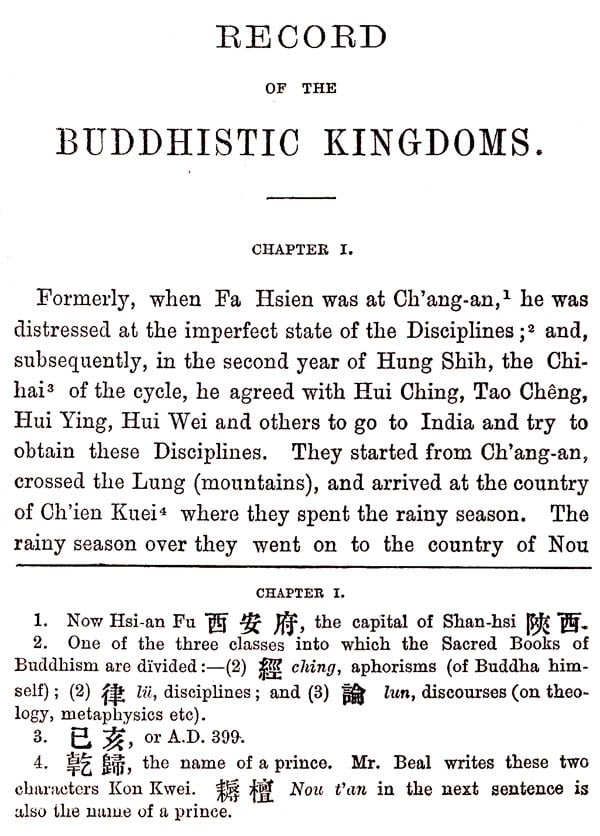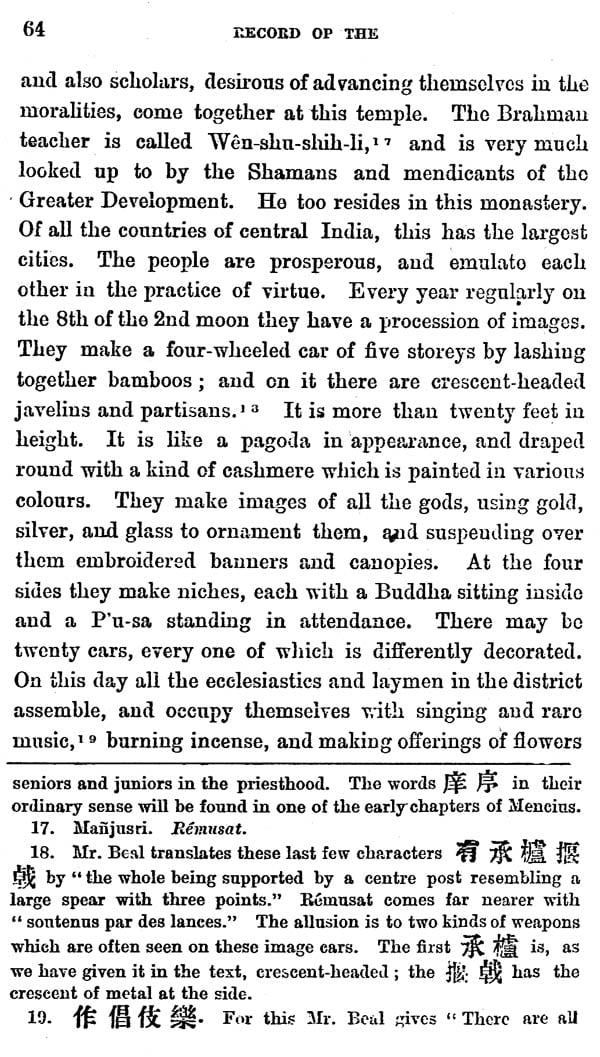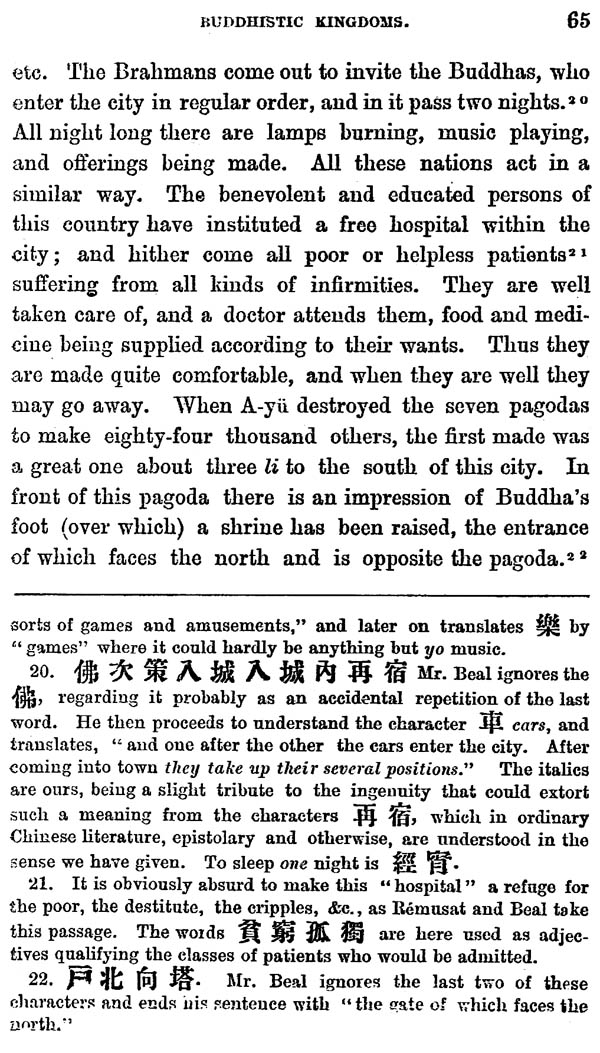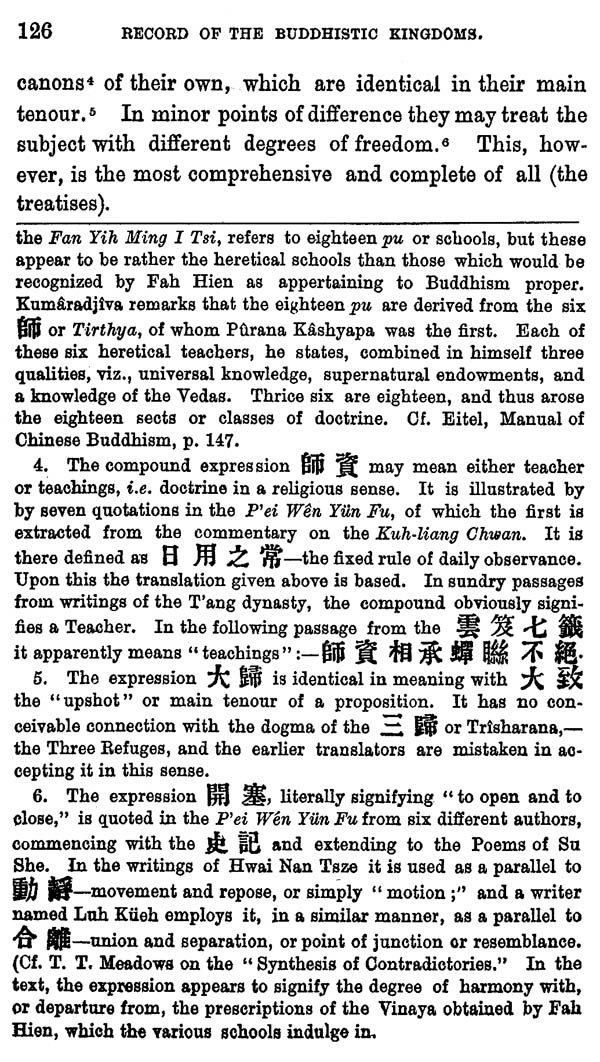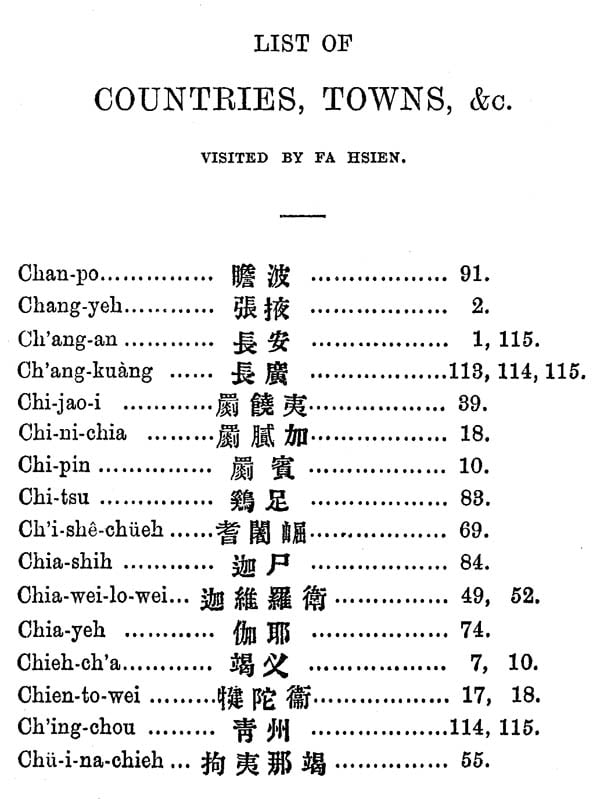
Records of the Buddhistic Kingdoms
Book Specification
| Item Code: | NAW354 |
| Author: | H.A. Giles |
| Publisher: | PRITHIVI PRAKASHAN |
| Language: | English |
| Edition: | 1972 |
| Pages: | 130 |
| Cover: | HARDCOVER |
| Other Details | 7.50 X 5.00 inch |
| Weight | 190 gm |
Book Description
The ‘Record of the Buddhistic Kingdoms" is a meagre narrative of one of the most extraordinary journeys ever undertaken and brought to a successful issue. A Buddhist priest, named Fa Hsien, travels from China through India to Ceylon, on to Sumatra and back to China by sea; his object being to obtain copies of the Sacred Books of Buddhism for the further enlightenment of his fellow countrymen at home.
This work was translated into French by Rémusat, but he did not live to superintend its publication. He had, in fact, only revised about one half, that half being accompanied by valuable and exhaustive notes. In this state it fell—we were almost saying, among thieves—into the hands of Klaproth, who, with the slender assistance of Landresse and his own very considerable aplomb, managed to fill up the blanks of the latter portion, add some bulky notes after the manner, but lacking the scholarship, of Rémusat, and generally patch up the whole in a form presentable to the public. This was subsequently translated into English by a Mr. Laidlay.
In 1869 the Rev. 8. Beal, Chaplain in Her Majesty's Fleet, published a new version of the travels of Fa Hsien, in which he corrected some of the mistakes, grammatical and otherwise, which disfigured Réemusat’s translation but managed, it has appeared to us, to introduce in the process a very considerable number of his own. Whether this is so or not we shall leave to the discrimination of those of our readers who understand Chinese, and will take the trouble to follow the notes in which we point out Mr. Beal’s errors, or seek to justify any renderings of our own which may differ from those adopted by our predecessors. We would submit that the present translation was undertaken solely with a view to get at an exact grammatical analysis of the text. We do not pretend to have elucidated any new points in the great field of Buddhism, or to have succeeded in identifying any of the hitherto unknown or doubtful localities visited or mentioned by Fa Hsien. This would be the province of those who have devoted more time than ourselves to the fascinating study of ancient geography ;—not, indeed, that we mean to insinuate that translation is our own particular province, for we would gladly have seen this task in the hands of some such accomplished scholar as Mayers, Edkins, or Eitel, In that case, future students of the ‘ Buddhistic Kingdoms" would have had at their disposal an English version, proof against any criticism that could be brought to bear. As it is, we can only hope that the present translation will be found a much more accurate rendering than that published by Mr. Beal, who in the year 1869 seems to have been quite unqualified for the task he undertook. He certainly corrected a great many of Remusat’s blunders, speaking somewhat unctously of the "looseness" of the French version, but we could not dismiss from our minds the unpleasant suspi cion that Mr. Beal had drawn upon the valuable notes to that despised volume to a greater extent than he was frank enough to acknowledge. We shall avoid this imputation by invariably quoting the sources of information given; and whenever we have occasion to raise a question as to the proper way of translating any passage, we shall try to put the arguments for and against both views before the reader in as impartial a manner as possible. Our object will be to express the real meaning of the text in the most simple language, unadorned with tawdry flowers of composition: in fact, rather partaking of the rugged, unpolished style of the original. We shall welcome any strictures, however severe, that may lead us to a better appreciation of this difficult author. We have not spared the feelings of Mr. Beal, and we court no quarter ourselves. For there is nothing disgraceful in misunderstanding a sentence of Chinese; it need not brand anyone with infamy or overwhelm him with shame. In support of which dangerous theory and for the en- couragement of all erring students of Chinese, we will now relate how a very extraordinary blunder was once made by a celebrated sinologue, and escaped the eagle eye of criticism for many years, during which period the author of its existence rose to power and fame, and is now Her Majesty’s Minister at the Court of Peking.
**Contents and Sample Pages**
